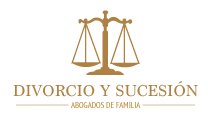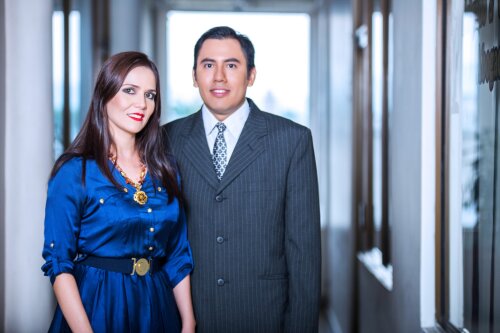Best Probate Lawyers in Bucaramanga
Share your needs with us, get contacted by law firms.
Free. Takes 2 min.
List of the best lawyers in Bucaramanga, Colombia
About Probate Law in Bucaramanga, Colombia
Probate in Bucaramanga, Colombia refers to the legal process through which a deceased person's estate is administered and distributed to heirs and beneficiaries. This process, known as “sucesión” in Colombian law, includes the identification of heirs, the division of assets and liabilities, and the formal transfer of ownership. Probate proceedings can be judicial or notarial, depending on the specific circumstances and the existence or absence of disputes among beneficiaries. The main objective is to ensure that a person's property and debts are handled according to the law and, where applicable, the deceased’s will.
Why You May Need a Lawyer
Navigating probate laws in Bucaramanga can be complex due to strict legal formalities, property valuation issues, potential disputes among heirs, or challenges regarding the validity of a will. Common situations where a lawyer’s help is invaluable include:
- Interpreting or contesting a will
- Handling disagreements among heirs over asset distribution
- Clarifying legitimate and compulsory heirs (“herederos forzosos”)
- Managing debts and tax obligations within the estate
- Completing necessary notarial or court documentation
- Ensuring the legal transfer of property titles
- Addressing potential claims from creditors
A legal expert will help ensure that the probate process runs smoothly, is legally compliant, and protects the interests of all parties involved.
Local Laws Overview
Probate in Bucaramanga follows Colombian national law, primarily the Civil Code and the General Procedural Code, but local notarial practices and court jurisdictions also play a key role. Key aspects include:
- Distinction between judicial and extrajudicial (notarial) proceedings. If all heirs agree and there are no minors or incapacitated persons, the process can often proceed before a notary (“sucesión notarial”). Otherwise, it must be handled in court.
- The Colombian Civil Code designates forced heirs who cannot be excluded from the inheritance except for legal reasons.
- Inheritance taxes (“impuesto de ganancia ocasional”) may apply depending on the value of the assets transferred.
- Real estate requires updated cadastral and registry documents for transfer to heirs.
- All interested parties, including potential creditors, must be notified and allowed to participate in the process.
- Heirs accept both assets and liabilities when receiving their portion of the estate (“aceptar con beneficio de inventario” allows heirs to limit their liability toward the estate’s debts).
Frequently Asked Questions
What is probate in Bucaramanga, Colombia?
Probate is the legal process for settling a deceased individual’s estate, ensuring the distribution of property, paying debts, and transferring ownership to heirs or beneficiaries.
What documents are needed to begin probate?
You will generally need the death certificate, identification documents for heirs, copies of the will (if available), property titles, and an inventory of assets and liabilities.
Do all inheritances go through a notary or court?
No. If all heirs are adults, there is consensus, and there are no disputes, the process can usually proceed before a notary. Otherwise, the matter must be resolved in court.
How long does the probate process take?
Simple cases may be resolved within several months, especially notarial-successions. Judicial proceedings or cases involving disputes will often take much longer, potentially a year or more.
Who are the compulsory heirs?
Under Colombian law, compulsory heirs include children, spouses or permanent partners, and, in some cases, parents. These individuals are entitled to a set portion of the estate.
What happens if there is no will?
If there is no will, the estate will be divided according to the rules of intestate succession, following the order set by Colombian law.
Can an heir refuse their inheritance?
Yes. Heirs may formally renounce their inheritance, but this must be done through a notarial or judicial declaration.
Are debts inherited?
Heirs inherit both assets and debts. However, accepting with benefit of inventory can limit liability so heirs only pay debts up to the value of what they inherit.
Is there an inheritance tax in Colombia?
Yes, inheritances are subject to a capital gains tax (“ganancia ocasional”) based on the value of the assets received. Payment must be declared to the Colombian tax authority.
Can foreigners inherit property in Bucaramanga?
Foreigners have the right to inherit property in Colombia, but may face additional steps regarding currency transfers or property titling.
Additional Resources
If you need more information or formal assistance, consider the following resources:
- Notarías in Bucaramanga for initiation of notarial succession proceedings
- Family Courts (“Juzgados de Familia”) for judicial probate cases
- Superintendence of Notaries and Registry (“Superintendencia de Notariado y Registro”) for property-related matters
- Colombian Tax Authority (“DIAN”) for issues regarding inheritance taxes
- Local bar associations for trusted legal referrals
Next Steps
If you require legal advice or representation with a probate matter in Bucaramanga:
- Gather all relevant documentation, such as the deceased’s death certificate, property deeds, and a copy of the will if available.
- List assets and debts belonging to the estate.
- Identify all potential heirs and beneficiaries.
- Contact a qualified probate lawyer familiar with local and Colombian law.
- If no disputes exist among heirs, visit a notary with all parties to explore notarial succession.
- If disputes or special circumstances exist, prepare to file a case with the local Family Court.
- Stay informed on deadlines, tax filings, and legal obligations throughout the procedure.
Consulting with a trusted lawyer early in the process will help you avoid unnecessary delays and ensure your rights and obligations are fully protected.
Lawzana helps you find the best lawyers and law firms in Bucaramanga through a curated and pre-screened list of qualified legal professionals. Our platform offers rankings and detailed profiles of attorneys and law firms, allowing you to compare based on practice areas, including Probate, experience, and client feedback.
Each profile includes a description of the firm's areas of practice, client reviews, team members and partners, year of establishment, spoken languages, office locations, contact information, social media presence, and any published articles or resources. Most firms on our platform speak English and are experienced in both local and international legal matters.
Get a quote from top-rated law firms in Bucaramanga, Colombia — quickly, securely, and without unnecessary hassle.
Disclaimer:
The information provided on this page is for general informational purposes only and does not constitute legal advice. While we strive to ensure the accuracy and relevance of the content, legal information may change over time, and interpretations of the law can vary. You should always consult with a qualified legal professional for advice specific to your situation.
We disclaim all liability for actions taken or not taken based on the content of this page. If you believe any information is incorrect or outdated, please contact us, and we will review and update it where appropriate.









